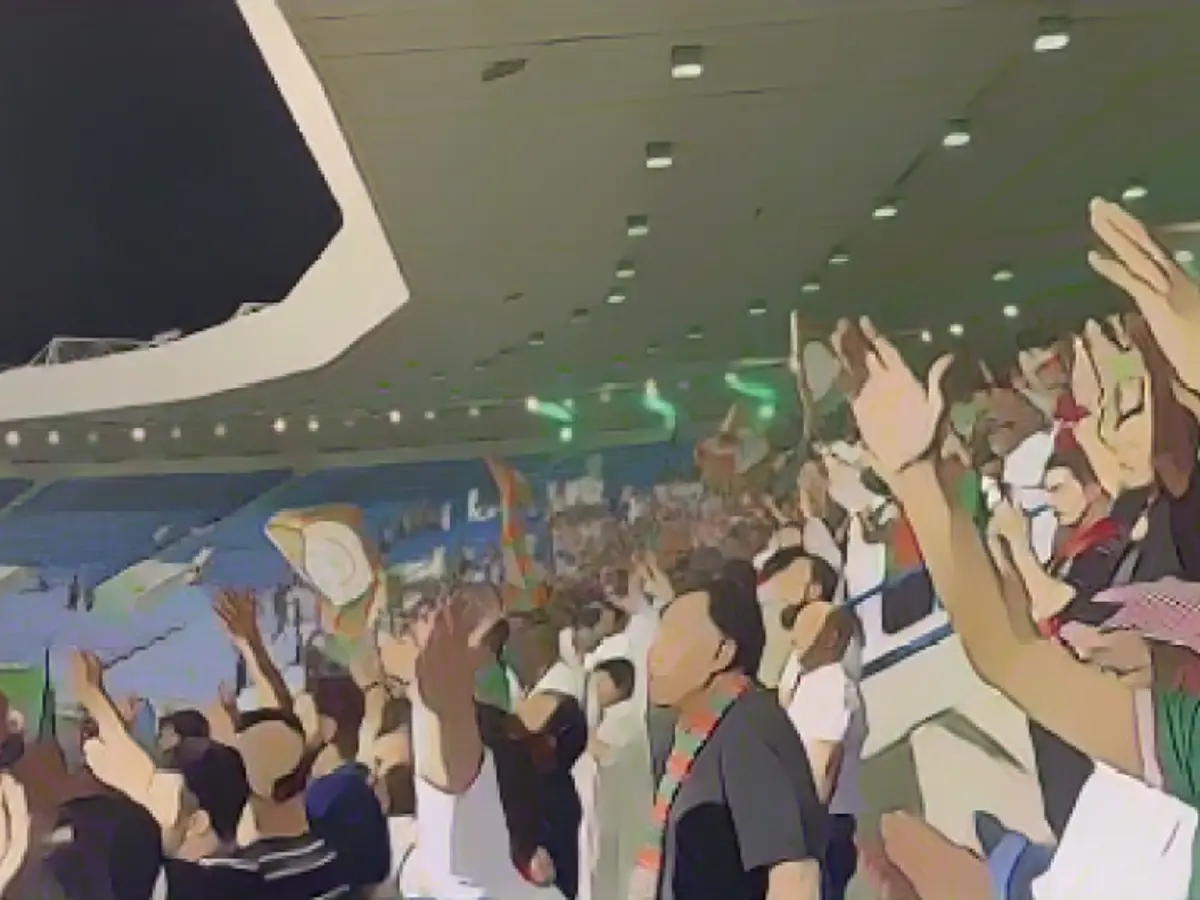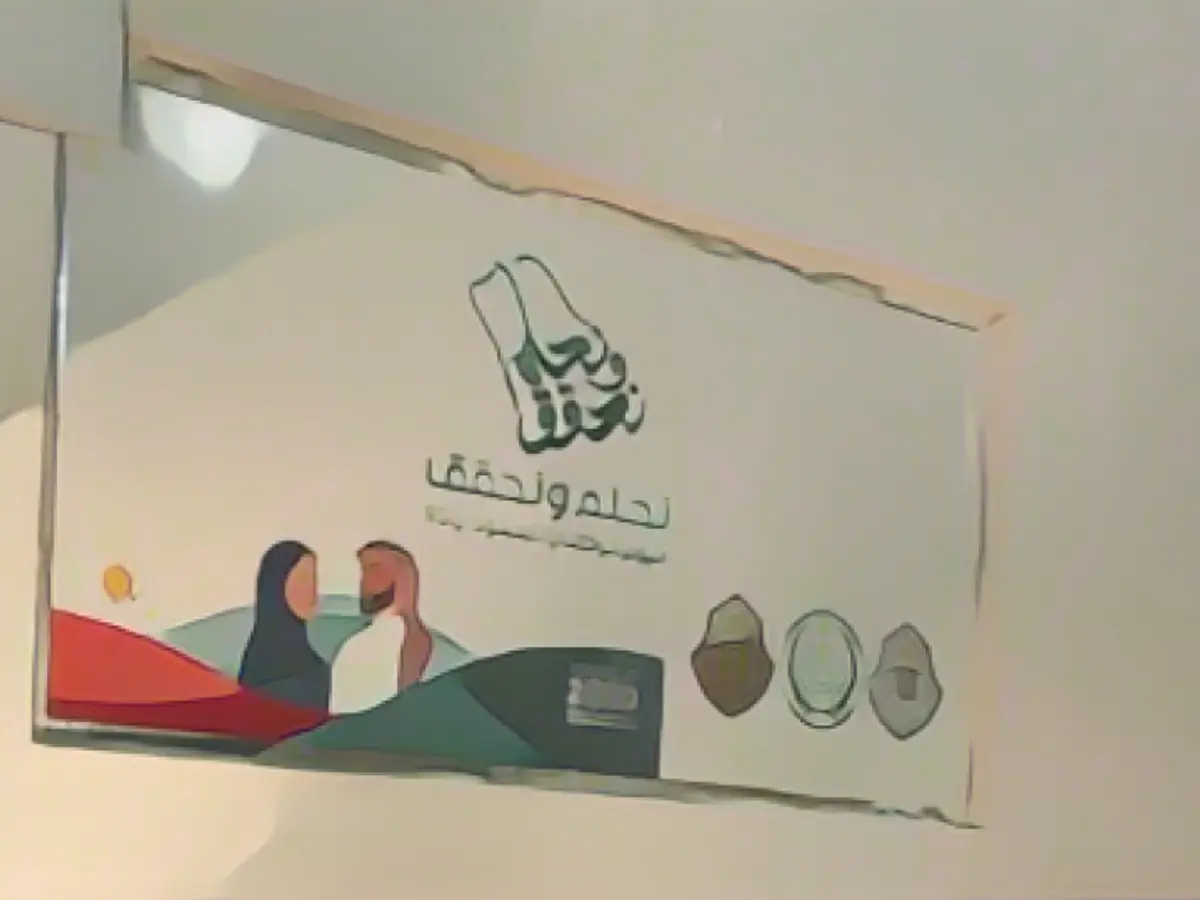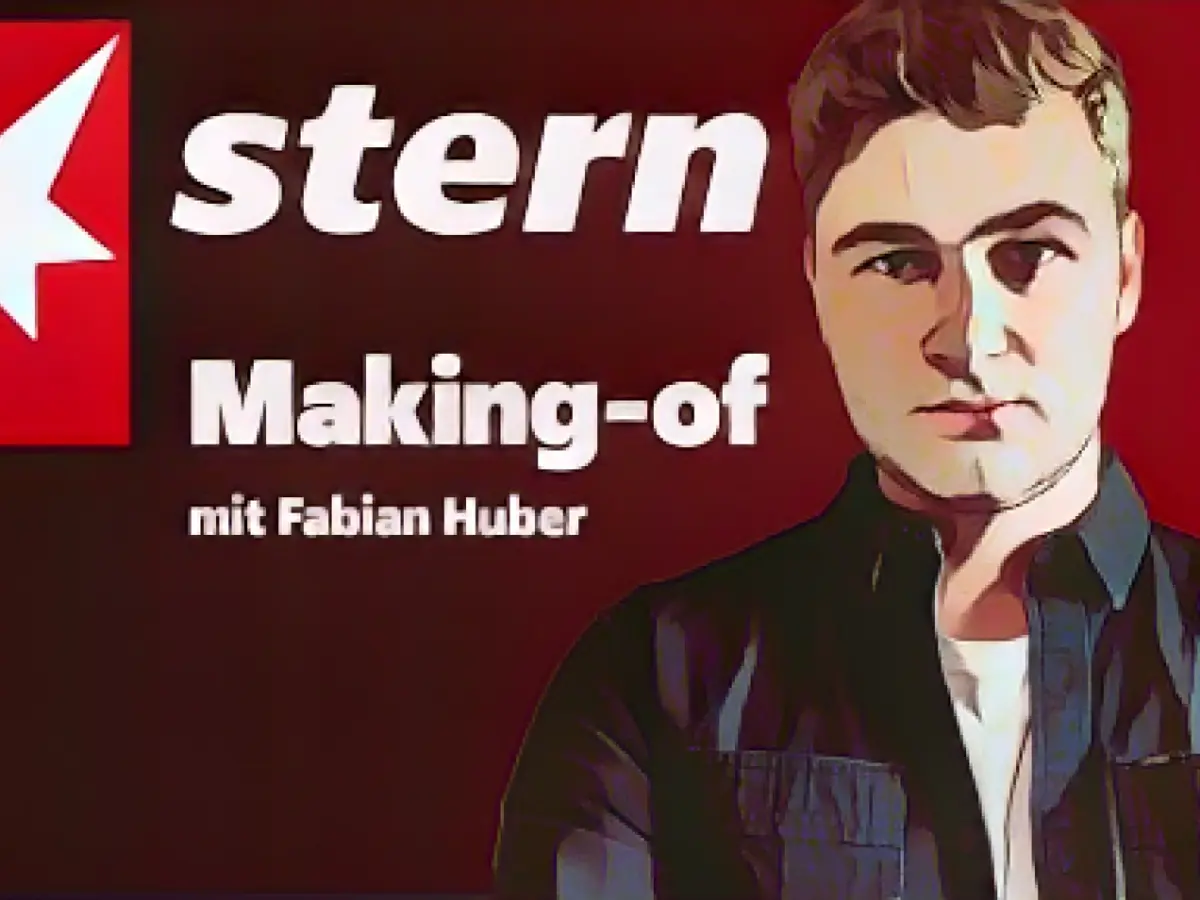Behind the story - Saudi Arabia: Why a stern reporter was almost arrested - and boldness sometimes wins out
Making-of is the name of our new format. We want to give you a personal look behind the scenes, tell you about our everyday journalistic work and our research. We start with a short series in which we look back on our moments in 2023.
I was glad that my colleague in Saudi Arabia was now legally allowed to drive, as the day had been long and we still had a two-hour drive back home ahead of us. As stern reporters, we usually work together with local photographers when we are researching abroad. This has irresistible advantages: they have contacts, speak the language, know the situation and help us out of a jam. Problems can be avoided this way. Most of the time.
In Ta'if, a town deep in the Saudi mountains, our team of two had visited the training camp of the national women's soccer team. The players proudly told us what was now possible for them in this country: traveling, living alone, kicking a ball or even driving a car.
Unfortunately, our photographer was heading towards a police checkpoint, where the image of Saudi feminism was to get a few big scratches. The officer saw: a white blonde. And a young woman who was wearing an abaya - the Arabic overdress - but no headscarf. That in itself is absolutely permitted in the kingdom. I saw many women with flowing hair in Riyadh in the evening. But a desert street is not Riyadh, the whole of Saudi Arabia is often a legal gray area, as people kept telling me, and a reporter is not always prepared for every scenario.

The policeman checked our passports. He kept pointing at me. The Arabic I had absorbed in rap songs and on German city streets was enough to understand what he was shouting: "Almani, haram!" A German and a Saudi woman together in a car? Not related? Not related by marriage? Not married? He didn't like that at all. He called his superior.
I was once told by experienced colleagues that boldness wins out
Scenes of the diplomatic steps to be taken immediately played out in my head: I would call the German embassy. They would inform the Foreign Office. They would contact their counterpart in Riyadh. And they would then give in. "German reporter arrested in Saudi Arabia" is not a pleasant headline for a ruling house that is trying to polish up its internationally tarnished image, I thought. Old reporter warhorses, experienced in the more journalist-unfriendly parts of the world, once told me that audacity often wins out in such situations.
The next officer up stepped up to the driver's window with a diabolical grin. Our photographer would later tell me that she was bluffing without restraint at that moment. We were here at the invitation of the Minister of Sport himself, she said, pretending to have a journalist's ace next to her. But I was the only one sitting there, intimidated and meek. The policeman kept smiling. He showed us some arrest swipe on his cell phone, of some alleged couple who had been taken here sometime in the recent past for the same offense. He openly threatened to arrest them.

My rescuer at the wheel spotted a poster on the wall. On it was the "Vision 2030" logo. This is how Crown Prince Mohammed bin Salman is branding his path away from the ultra-conservative oil state towards a modern, at least economically diverse society in the Gulf. A country where women can play soccer and sit next to a man at the wheel without being married. The photographer pointed to the poster. "This is supposed to be your Vision 2030?" she shouted. It was the magic word. The two policemen looked at each other, puzzled - and let us drive on.
Read also:
- Year of climate records: extreme is the new normal
- Precautionary arrests show Islamist terror threat
- UN vote urges Israel to ceasefire
- SPD rules out budget resolution before the end of the year
During our visit to the national women's soccer team's training camp in Ta'if, we learned about the newfound freedoms in Saudi Arabia, such as traveling, living alone, and even driving a car. This was a significant shift, given the country's Middle Eastern context and its historical conservative attitudes towards feminism.
As we continued our journey, our photographer, unaware of the cultural nuances, approached a police checkpoint, risking the image of feminism in Saudi Arabia. The policeman, recognizing the white blonde woman in an abaya but without a headscarf, questioned our relationship, as it's not commonly seen in the Middle East.
In such situations, experienced journalists suggested boldness could be the key. Leaning on our diplomatic connection to the Minister of Sport, our photographer boldly claimed we were there on his invitation, a claim that ultimately led us to be let go, emphasizing the potential for boldness to triumph in challenging scenarios.
Source: www.stern.de








